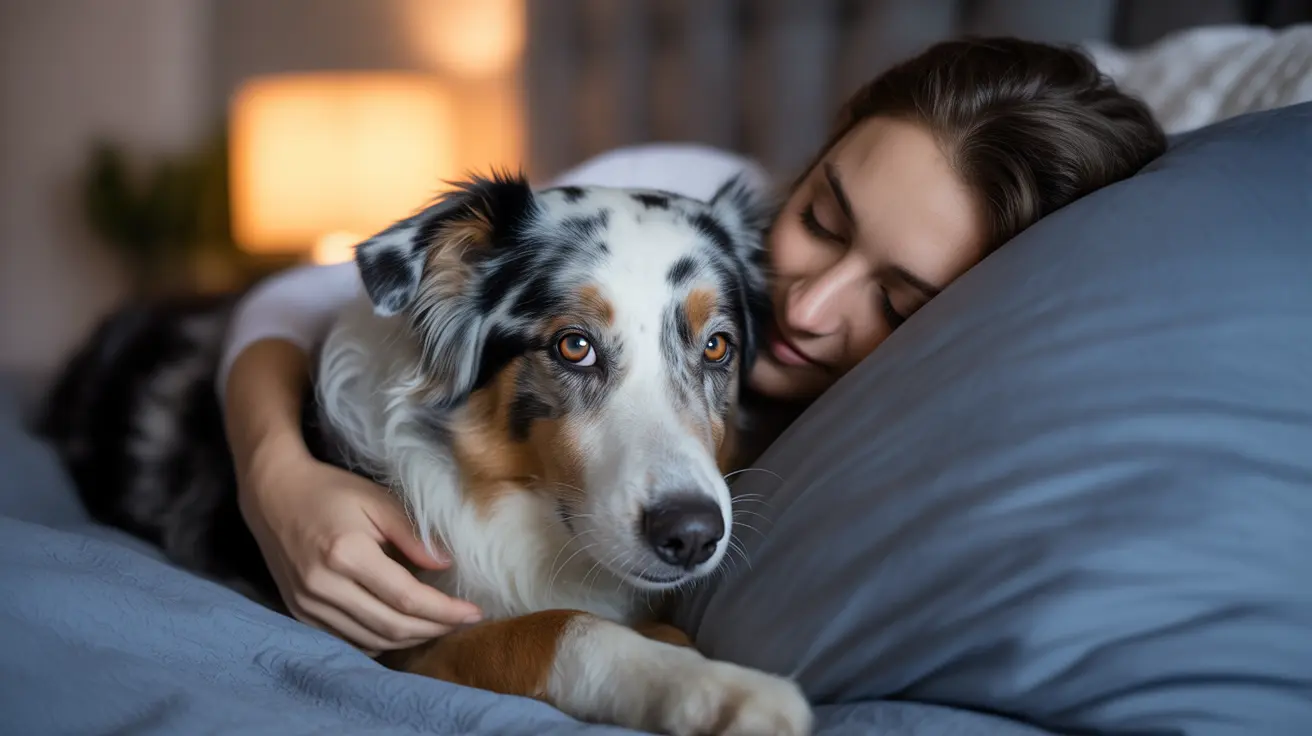Dogs choosing to sleep with their owners is a common and endearing behavior rooted in both instinct and emotion. From evolutionary pack mentality to the deep bonds formed with human companions, there are multiple fascinating reasons why your furry friend prefers your company at bedtime. Let's explore the science and psychology behind this cherished canine habit.
The Pack Mentality: An Evolutionary Explanation
Dogs are naturally social creatures with strong pack instincts inherited from their wolf ancestors. In the wild, pack animals sleep together for warmth, protection, and social bonding. When your dog chooses to sleep with you, they're following these ancient instincts, viewing you as their trusted pack leader.
This behavior isn't just about physical comfort – it's a sign of deep trust and security. Your dog recognizes you as their primary caregiver and protector, making your bed an ideal sleeping location from their perspective.
The Comfort of Your Scent and Presence
Dogs have an incredibly powerful sense of smell, and your scent provides them with comfort and reassurance. Your bed, being full of your familiar scent, naturally attracts them as a safe and soothing space. This is particularly true for dogs who experience anxiety or stress when separated from their owners.
Additionally, the physical comfort of a human bed – with its soft mattress and warm blankets – often surpasses that of a standard dog bed, making it an appealing choice for your pet.
Strengthening the Human-Canine Bond
Sleeping together releases oxytocin – often called the "love hormone" – in both dogs and humans. This chemical promotes bonding and feelings of happiness and security. When your dog chooses to sleep with you, they're both seeking and reinforcing this emotional connection.
Temperature Regulation and Physical Comfort
Dogs may alternate between snuggling close and moving to cooler spots throughout the night to regulate their body temperature. This behavior is perfectly normal and shows they're comfortable enough with you to adjust their position as needed.
Anxiety and Emotional Support
Many dogs seek close proximity during sleep to help manage anxiety or stress. This is especially common in dogs with separation anxiety or those who have experienced past trauma. The security of sleeping near their human can provide significant emotional comfort.
Frequently Asked Questions
Why does my dog want to sleep with me instead of its own bed?
Dogs prefer sleeping with their owners due to pack mentality, the comfort of your scent, and the emotional security your presence provides. Your bed also offers physical comfort and warmth that may exceed their own bed's comfort level.
Is it normal for dogs to sleep on or near their owner's body?
Yes, this is completely normal behavior. Dogs in the wild sleep close to their pack members for safety and warmth, and your pet is simply following this natural instinct with you as their pack leader.
How does sleeping with my dog affect their behavior and our bond?
Co-sleeping can strengthen your bond through increased oxytocin release and physical closeness. It often leads to greater trust and can help reinforce your position as their trusted caregiver.
Can sleeping with my dog help reduce their anxiety or stress?
Yes, sleeping near you can significantly reduce your dog's anxiety levels. Your presence provides security and comfort, especially for dogs with separation anxiety or nervous temperaments.
What are the benefits and drawbacks of letting my dog sleep in my bed?
Benefits include stronger emotional bonds, mutual comfort, and potential anxiety reduction for both parties. Drawbacks might include disrupted sleep, hygiene concerns, and possible dependency issues. Consider your personal situation when making this decision.
Conclusion
Your dog's desire to sleep with you is a natural, instinct-driven behavior that also reflects the special bond you share. Whether you choose to allow bed-sharing or prefer to maintain boundaries, understanding the reasons behind this behavior can help you make informed decisions about your sleeping arrangements while maintaining a loving relationship with your pet.






